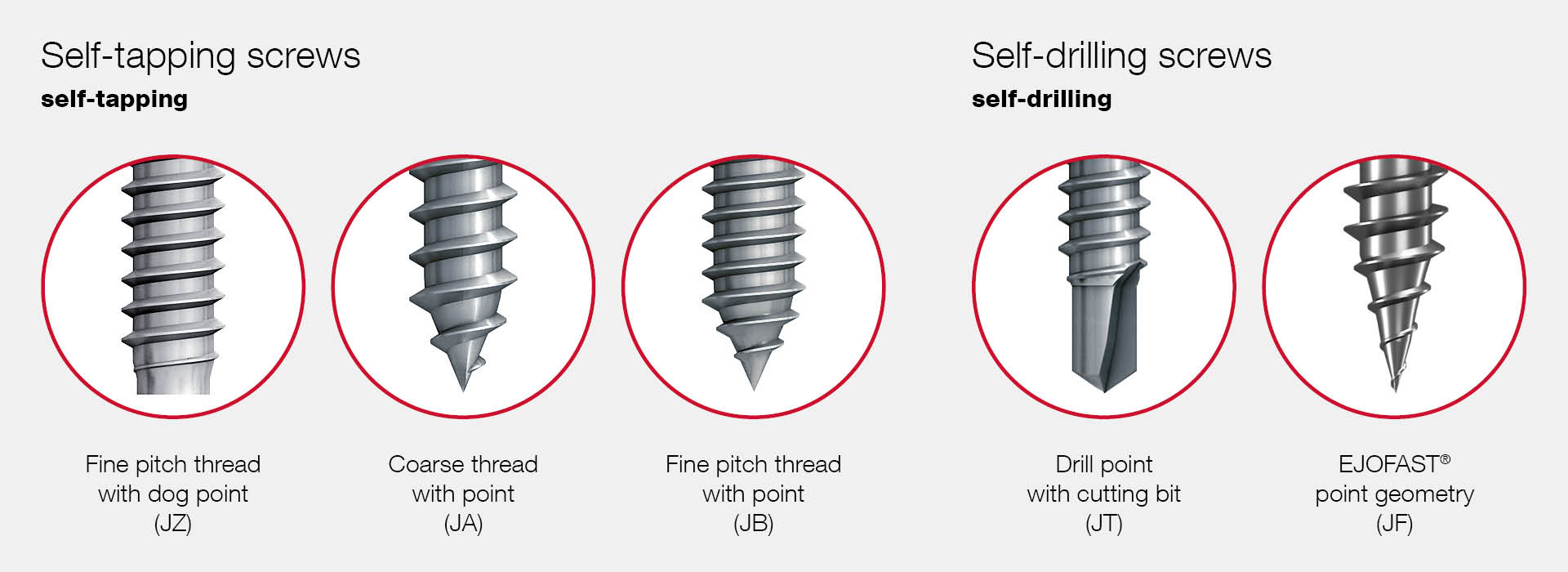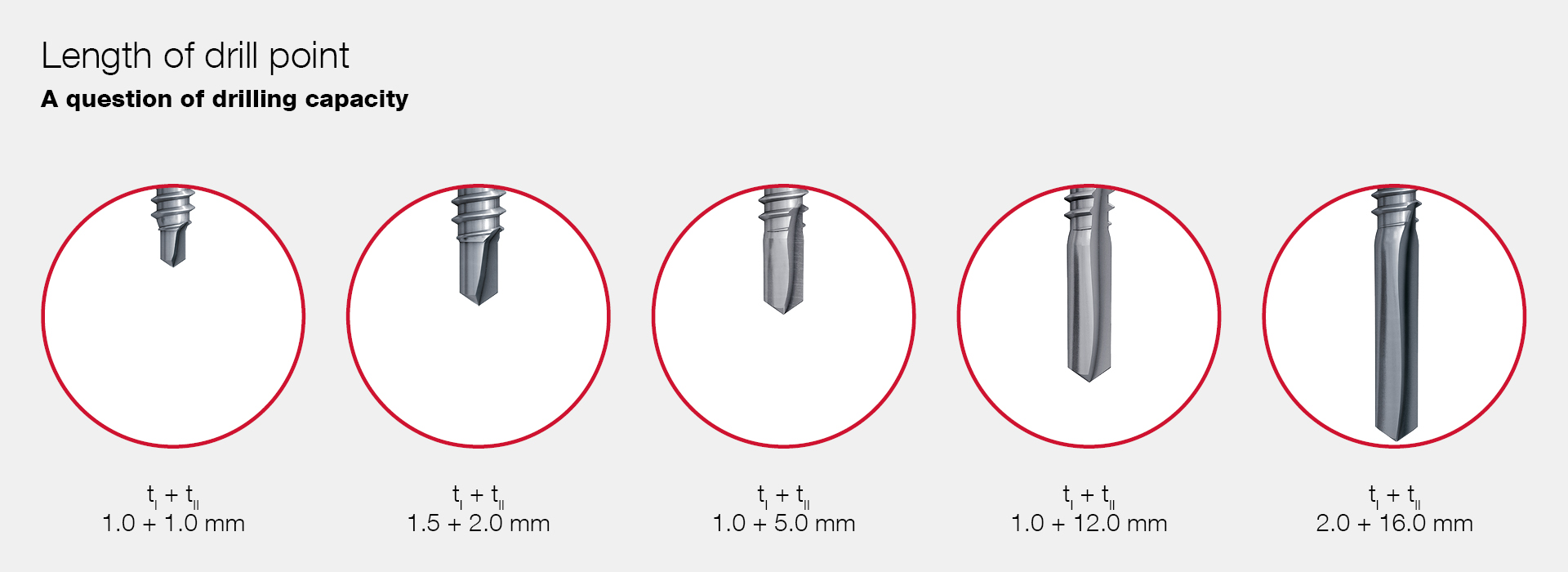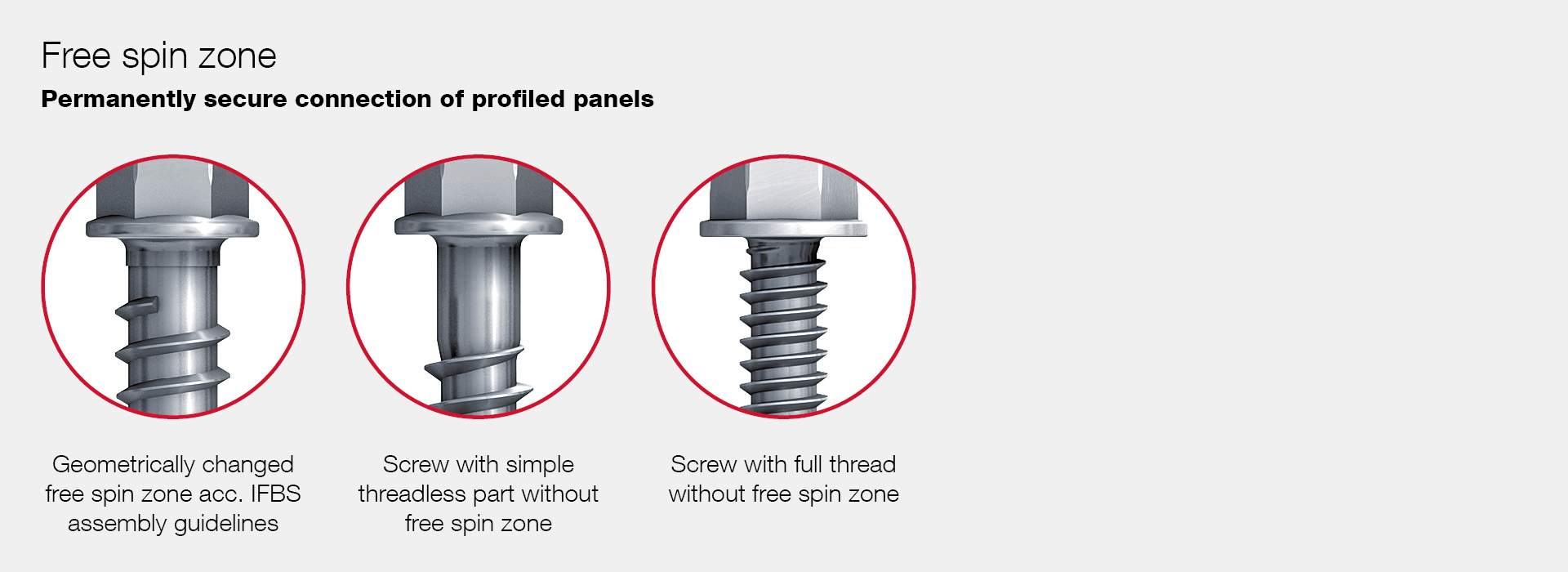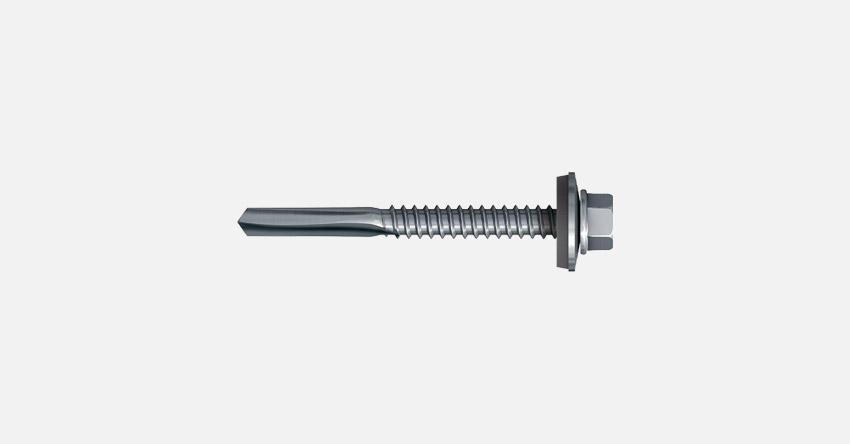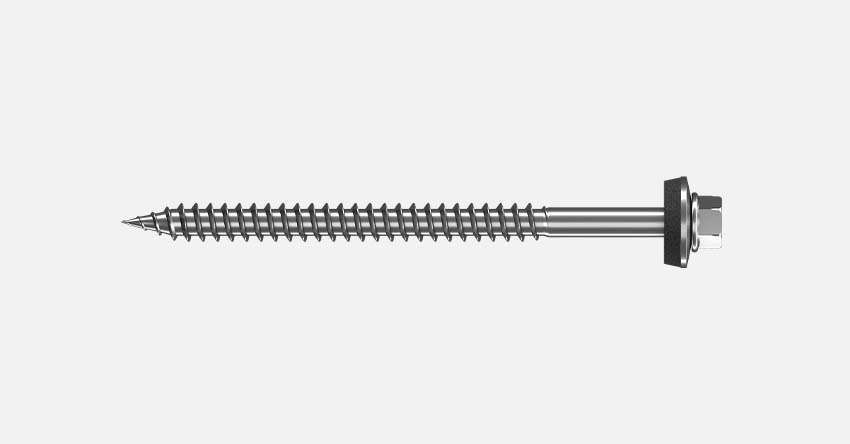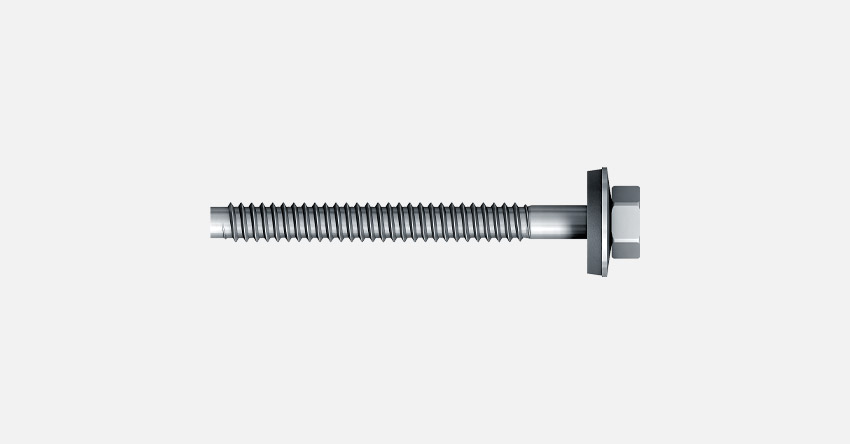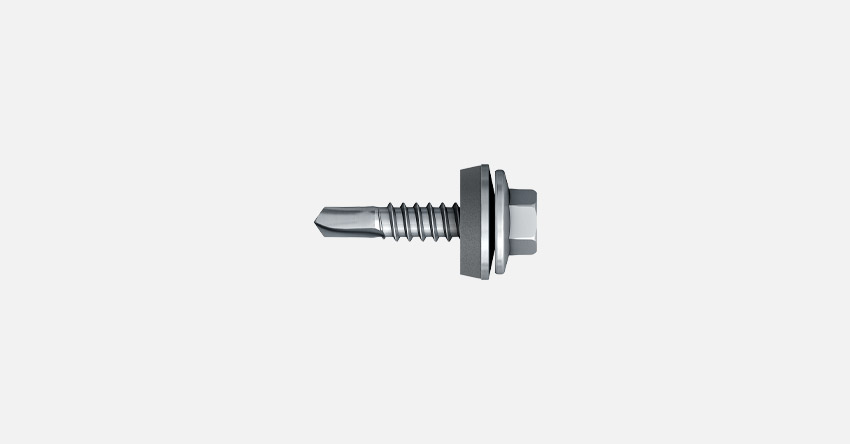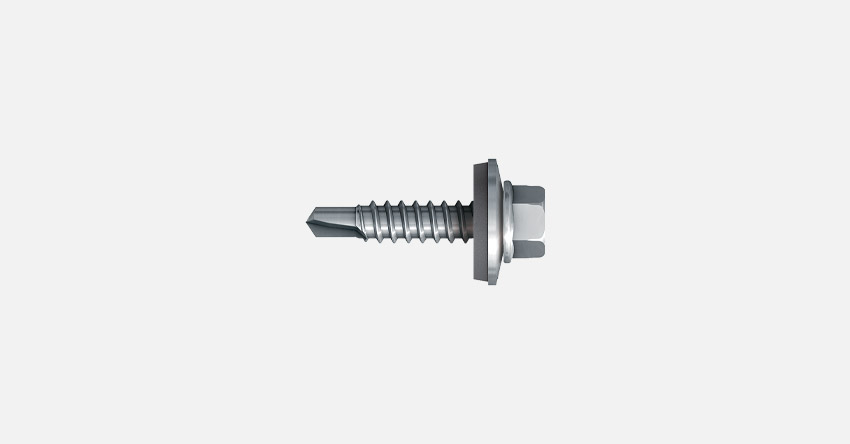Types of screws
Guide to self-drilling screws – Part 1
The screw connection as a mechanical fastening solution is still the classic method for connecting components to one another.
In the first part of our guide to self-drilling screws we will give you a general overview of the different screw types and you will learn more about the respective special features.
In the first part of our guide to self-drilling screws we will give you a general overview of the different screw types and you will learn more about the respective special features.
Two types of screws in industrial lightweight construction
In the field of industrial lightweight construction, we basically differentiate between self-tapping (also called thread-cutting) and self-drilling screws. Let's take a closer look at the respective properties of these screw types:Self-tapping screws
Self-tapping screws are screws assembled with sealing washers without drill points.Self-tapping screws seal the bore hole towards the outside and thus protect it from wetness. They are therefore mainly used in outdoor areas on facades or roofs. Since the screws do not have a drill point, a through hole must first be made in a previous work step. However, the thread is then formed automatically in the screwing process. This eliminates work steps and other tools such as tap drills or fastening elements such as nuts.
Self-tapping screws are also differentiated according to whether they are fastened in timber or metallic/steel substructures. Depending on the substructure, they have different properties.
Fastening to timber substructures
In order to achieve high load-bearing capacity values in timber, the screws have a coarse thread. This is characterized by a large pitch and a large depth of bevel in the thread geometry. EJOT screws from the JA series are an example of this.Fastening in steel substructures
For use in thicker steels, however, screws with a finer thread geometry are necessary in order to form a fine thread. The EJOT JZ3 screws can be named here as an example.In the case of fasteners for steel substructures, a distinction is also made between two "point styles". The JZ screws have a dog point at the bottom – that is, a dulled end – while the JB screws have a point. The latter are suitable for thinner steel substructures, as the point is better positioned in the pilot hole.
Classic self-drilling screws
The classic self-drilling screws represent a further improvement of the screws assembled with sealing washers. Here, the thread-forming screws are combined with a cutting drill point. They are called self-drilling screws, as there is no need to pre-drill the substructure. Through hole, internal screw thread and fastening take place in just one work step.The classic self-drilling screws are suitable for parts made of different materials such as steel or aluminium, depending on the screw material. In the building industry, they are used to fasten trapezoidal profiles and composite panels. There are both self-drilling screws with low drilling capacity (also called drilling performance) for thin sheet metal and screws with large drilling capacity such as the EJOT JT3-18, which cut through thick substructures made of construction steel up to a thickness of 16 mm.
Self-drilling screws with reduced swarf
Swarf is usually produced with both self-drilling screws and self-tapping screws. This swarf must be removed in a separate work step in order to prevent rusting. The self-drilling screws with reduced swarf therefore represent a further stage in the development of self-drilling screws. Pre-drilling of the construction or cutting of a thread is not necessary here. The screws of the EJOFAST® family can be mentioned as an example. The unique tip geometry of the EJOFAST® self-drilling screws penetrates thin sheet metal with reduced swarf, resulting in significantly reduced cleaning effort. Self-drilling screws with reduced swarf are ideal for thin sheet metal connections or fastening sheet metal to wood.Special features of self-drilling screws
After we have looked at the two types of screws, we would like to conclude with a few special features of screws for industrial lightweight construction:Diameter
Screws for industrial lightweight construction usually have a diameter of 4.8 mm to 8.0 mm.
Undercut
Screws with an undercut are used for thin sheet metal connections. This is a section directly under the screw head that has no thread. This section minimizes stripping of the sheet metal, which can mean a loss of load-carrying capacity. In addition, it offers turning-back protection, which prevents unintentional loosening of the screw and a loss of tightness of the roof.
Material
In addition to self-drilling screws made of heat-treated steel, the screw parts often consist of two different raw materials. These are so-called bimetal screws. The screw head, shaft and thread are made of rustproof stainless steel to ensure a permanently corrosion resistant connection. Since the stainless steel does not achieve the necessary hardness to penetrate steel components, the drill point is made of hardenable steel.
In this post we have now learned about two different types of screws with their respective properties and special features. In the next part of the guide to self-drilling screws you will find information about the drive and the different head styles of self-drilling screws.
In addition to self-drilling screws made of heat-treated steel, the screw parts often consist of two different raw materials. These are so-called bimetal screws. The screw head, shaft and thread are made of rustproof stainless steel to ensure a permanently corrosion resistant connection. Since the stainless steel does not achieve the necessary hardness to penetrate steel components, the drill point is made of hardenable steel.
In this post we have now learned about two different types of screws with their respective properties and special features. In the next part of the guide to self-drilling screws you will find information about the drive and the different head styles of self-drilling screws.

